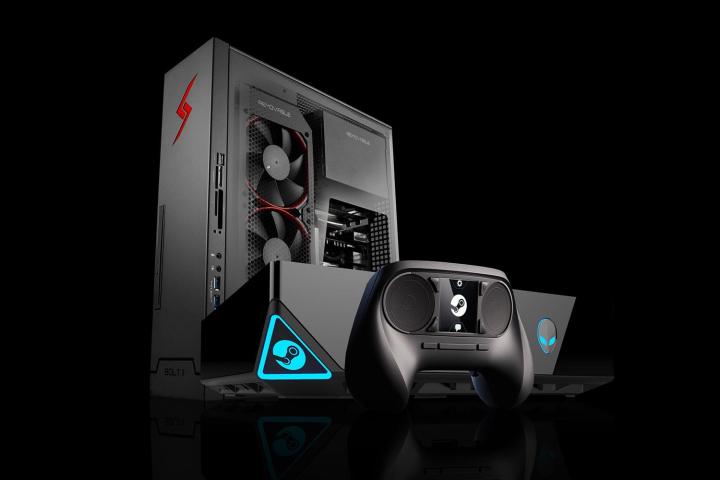
As part of updating the Steam Controller functions, the company announced that it’s sold over 500,000 Steam Controllers since the launch in November. The company has also verified that those numbers encompass to console-bundled controllers, so we’re likely talking about a total sale of less than 500,000 Steam Machines since launch. That includes every branded Steam Machine sold through Valve’s hardware partners.
In case you’re thinking 500,000 is plenty, think again. Comparing the sales of Steam Machines to the competition further increases the hurt for Valve. Rivals in the gaming platform sector like PlayStation 4 and Xbox One respectively reached 10.2 million and 5.5 million in sales in their first seven months on the market. Both consoles beat Steam Machines by double on their first day, reaching over a million sales each. According to John Peddie Research the global hardware market for new “Enthusiast” and “Performance” desktop PCs comprised about $18.3 billion. Even if your average SteamOS customer spent $1,000 per Steam Machine it wouldn’t amount to more than $500 million, barely 3 percent of the annual market.
SteamOS is Valve’s ticket into the hardware race, and could attract a whole new kind of community surrounding the company’s software and hardware releases. It has already seen tremendous success with its digital store, which is the largest of its kind in the world. Furthermore, it has made a noticeable dent in the virtual reality community by collaborating with HTC on the HTC Vive. If it could create a proper platform for its future virtual reality hardware and bundle it together with its Steam Machine brand things could get interesting, but we’ll have to wait and see where the privately held company decides to make its next move.
Editors' Recommendations
- The Ayaneo Next Lite is the first Steam Deck rival to feature SteamOS
- Steam Deck 2? This leak suggests Valve is working on new hardware
- Don’t like SteamOS? You can install Windows on your Steam Deck instead
- Google may be working with Valve to bring Steam to Chrome OS


